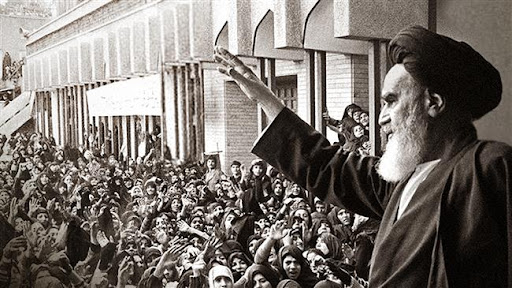School of Imam Khomeini (RA); Model Beyond Time and Place
DIDPress: Imam Khomeini, with a revolutionary outlook, brought religion out of the private sphere into the realm of society and governance. He demonstrated that Islam is not merely a set of rituals but a framework for the just administration of society. This perspective serves as a guide for the reconstruction of Islamic societies in the face of modern challenges.

Throughout human history, those who have altered the course of history and opened paths to liberation for generations are few. Among them, Imam Khomeini (RA) rose like a shining star from the East in the twentieth century and became immortal. By founding a grand school of thought, he left a profound impact on the human spirit and intellect, establishing a new doctrine of justice, resistance, and spirituality that continues to inspire nations.
Imam Khomeini’s school stands as an unparalleled model in contemporary history, presenting a profound integration of religion and politics. This school, emphasizing Islam as a civilization-building religion, offers a path to achieving justice and independence. For oppressed nations, this ideology inspires self-confidence and resistance.
With a revolutionary vision, Imam Khomeini extended religion from the individual realm to society and governance. He showed that Islam is not merely a collection of worship practices but a framework for just societal management. This view provides guidance for rebuilding Islamic communities against modern challenges.
The comprehensiveness of Imam Khomeini’s school distinguishes it from other schools of thought. He paid attention not only to politics and governance but also to ethics, culture, economics, and international relations. This holistic approach has made his school a source for the revival of Islamic civilization.
The Leader of the Islamic Revolution of Iran, Ayatollah Khamenei, has described Imam’s school as a combination of spirituality and rationality. Imam’s spirituality was rooted in his deep connection with Allah and faith in divine assistance. His rationality was evident in his prudent and wise governance, offering a practical model for Islamic societies: “There are two main dimensions in the school of our great Imam: the dimension of spirituality and the dimension of rationality. The spiritual dimension means that our great Imam did not rely solely on material factors and outward appearances in pursuing his path; he was devoted to connection with Allah, spiritual practice, attention, mindfulness, humility, and remembrance; he believed in divine help; his hope in Almighty God was endless. In the dimension of rationality, the use of intellect, prudence, thought, and calculation was also considered in Imam’s school…”
The 1979 Islamic Revolution in Iran, led by Imam Khomeini, was a turning point in world history. This revolution presented a model for resistance against global arrogance. Its impact awakened waves of self-awareness and independence movements among oppressed peoples.
A Global Thought for the Future of Humanity
Anti-arrogance was a core pillar of Imam Khomeini’s school. Through courageous speeches against oppressive powers, he strengthened an anti-colonial discourse worldwide. This message offers hope for liberation to nations suffering under the yoke of colonialism.
Imam Khomeini’s international image transformed him into a global symbol of resistance. His statements against America and Zionism, as embodiments of colonialism and arrogance, coupled with a message of justice and freedom, pioneered a new style of leadership. This style transcended borders and inspired freedom movements in both the East and West.
Emphasizing justice and self-reliance, Imam Khomeini’s school responds to contemporary challenges. Its capacity to adapt Islamic principles to current needs makes it a potential global model.
In today’s world, where injustice and domination prevail, Imam Khomeini’s school, emphasizing independence and spirituality, offers a path to liberation. This model is an undeniable necessity for nations pursuing dignity and progress.
The theoretical system of Imam’s school in politics, jurisprudence, philosophy, and ethics makes it a sustainable model. This school has the ability to adapt to various historical contexts and, particularly for Islamic societies, can serve as a foundation for cultural and social reconstruction.
The worldview of Imam Khomeini’s school elevates it beyond a local ideology. By proposing a civilizational discourse against Western materialism, this school is a global model for all who believe in justice and spirituality. This message is a hope for the future of humanity.
In summary, Imam Khomeini’s school, grounded in Islamic values, offers a way to revive religious and national identity. This school is a source of inspiration and action not only for Muslims but for all freedom seekers, and its expansion is essential to confront global challenges.
Rahmatollah Enayati – DID Press